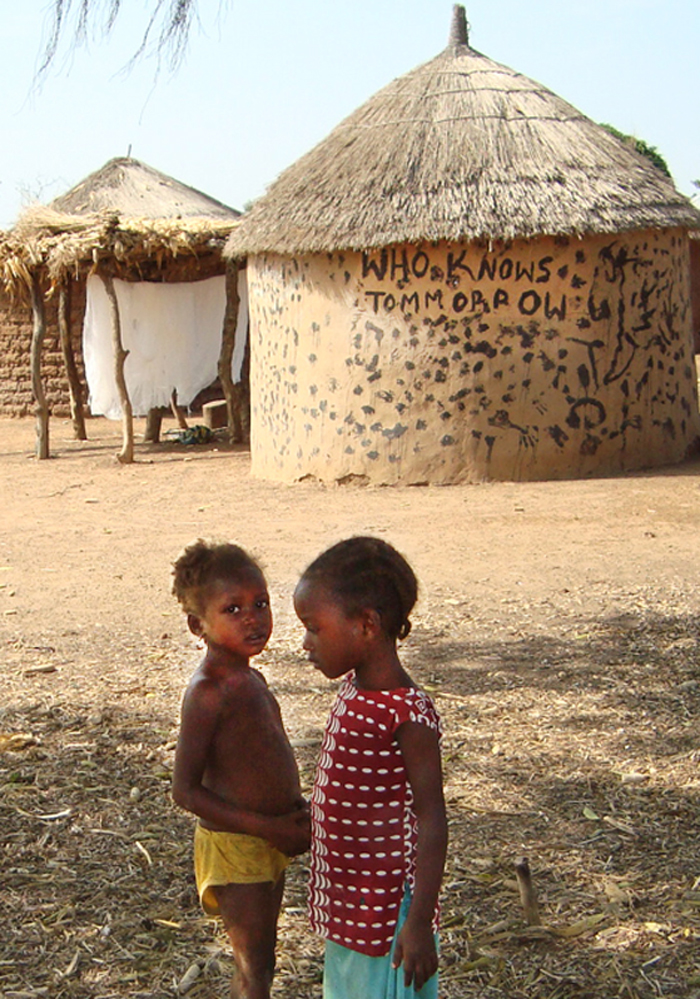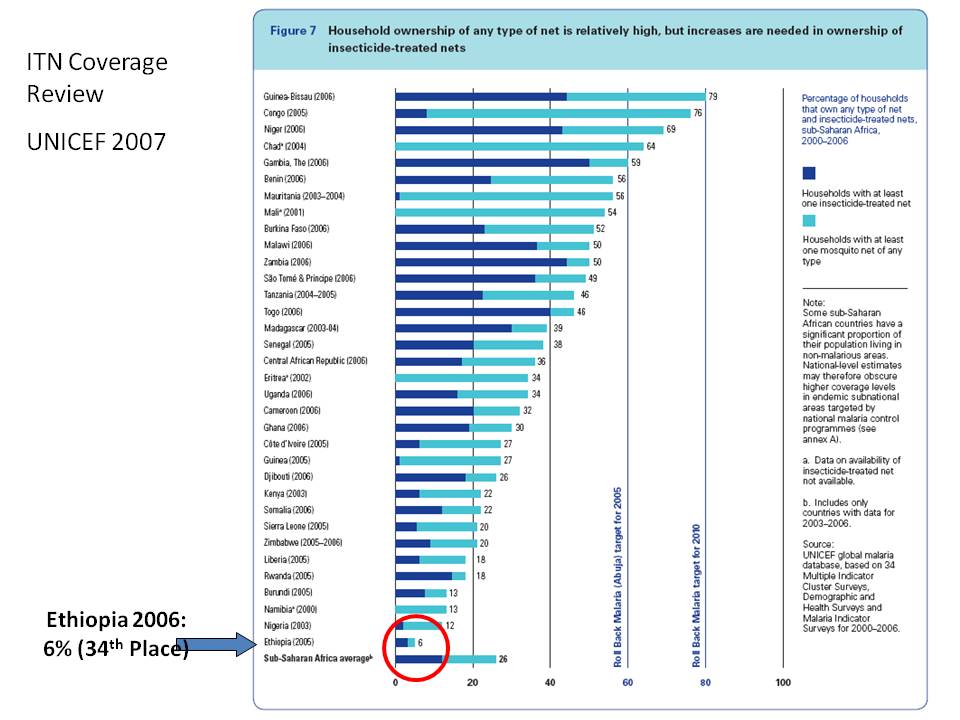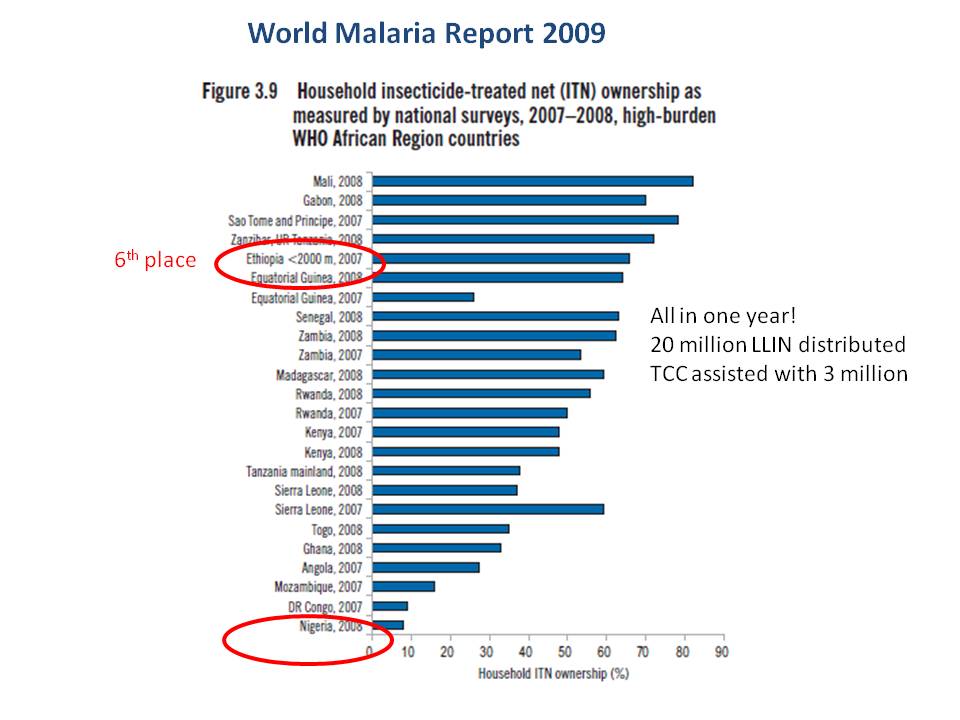A mother’s lullabies and soft caress are common nighttime rituals for children around the world. But throughout Africa, these soothing efforts cannot spare a child the high fevers, wracking chills, nausea, and headache of malaria–a potentially fatal disease.
However, with help from The Carter Center–and in partnership with the national malaria programs in Nigeria and Ethiopia–millions of families are getting the chance to significantly improve their own lives.

The Carter Center’s new Malaria Control Program in Nigeria—which works in partnership with the national program and is integrated into the Center’s other neglected disease control efforts—is helping children like these live to “know tomorrow.” In this village in Plateau State, Nigeria, bed nets hang outside a home, waiting to be used by these two children when they go to sleep. The bed nets are distributed free of charge and paired with health education on how to use them. (Carter Center Photo: F. Richards)
Building on decades of community-level “grassroots” experience fighting neglected diseases like Guinea worm, river blindness, lymphatic filariasis (elephantiasis), and trachoma, The Carter Center and its partners are helping to demonstrate that large-scale malaria prevention is possible in the largest malaria-endemic countries in Africa. Efforts have focused mainly on providing two important tools to every household: health education on malaria prevention and long-lasting insecticidal bed nets (LLINs) that offer protection from the night-biting mosquitoes that spread both malaria and lymphatic filariasis.
In the spring of 2011, the Center and its partners achieved an important milestone by reaching a cumulative total of 10 million bed nets distributed where they are needed most in Ethiopian and Nigerian communities (since late 2006 and late 2010, respectively). The Center also is helping measure the impact these nets are having against malaria.


Graphics Source: UNICEF Malaria and Children – Progress in Intervention and Coverage (2007) and the World Health Organization’s World Malaria Report (2009)
When the Carter Center’s Malaria Control Program began in Ethiopia in 2006 – at the invitation of the Ethiopian Ministry of Health – the government sought to dramatically improve bed net protection to cover all 50 million Ethiopians at risk for the potentially deadly parasitic infection. In only one year, with Carter Center support, more than 20 million long-lasting insecticide-treated bed nets (LLINs) were distributed, dramatically increasing the country’s protection against malaria. The Center’s work in Nigeria aims to accomplish a similar goal of blanketing the entire nation with bed nets that can help curb the spread of malaria and potentially save millions of lives. Nigeria has launched a nationwide 2010-2011 campaign to deliver 63 million nets, with about one-half already distributed.
Resources:
• Watch the video on the Center’s new malaria program in Nigeria >
• Read the blog about the pioneering MALTRA weeks in Ethiopia to combat malaria and trachoma >
• Learn more about the Carter Center’s Malaria Control Program >
Please sign up below for important news about the work of The Carter Center and special event invitations.